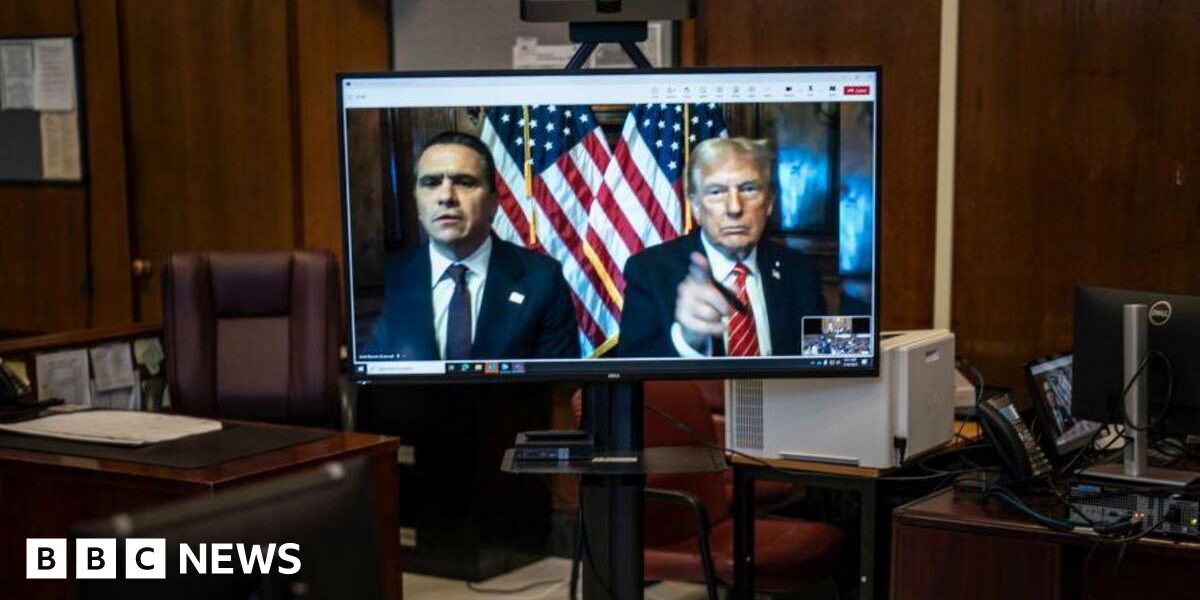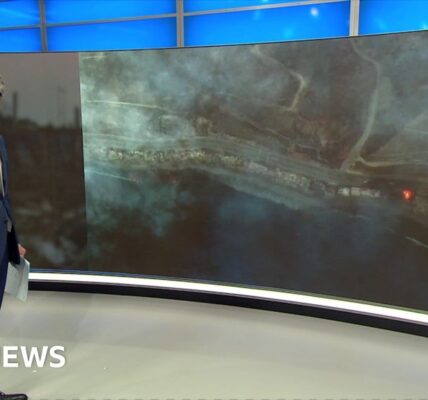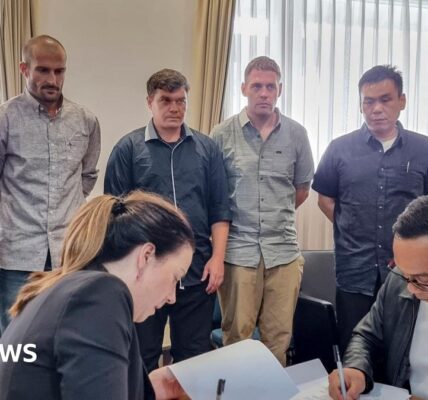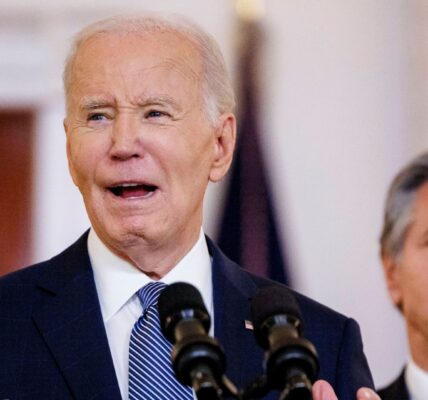Trump was found guilty by a New York jury of 34 felony counts of falsifying business records in May 2024. His sentencing was delayed multiple times due to Supreme Court rulings and the November presidential election.
The charges stemmed from a plot to cover up a hush-money payment to an adult film star in the waning days of the 2016 election. Prosecutors argued the payment was a form of election interference aimed at keeping vital information from voters, and therefore broke the law.
In October 2016, Trump’s then-attorney, Michael Cohen, paid a woman named Stormy Daniels $130,000 (£106,000) to remain silent about a years-old alleged sexual encounter with the soon-to-be president.
After he was elected, Trump reimbursed Cohen in installments – and then falsely recorded them as legal expenses. Each of Trump’s guilty verdicts correlates to a false document related to the cover-up.
Trump pleaded not guilty to the charges and denied the sexual encounter with Ms Daniels. He repeatedly claimed the case was politically motivated persecution.
The six-week trial became a legal, political and media firestorm. Larger-than-life characters like Cohen and Daniels took the stand to face questioning from Trump’s attorneys.
Trump brought a string of family members and Republican allies to court with him each day to fill the benches behind his defence table. Each day, he turned a small media pen in the hallway outside the courtroom into his personal pulpit, using the opportunities to rail against the justice system, the press, and other adversaries.
Trump also used the furore of the trial to raise millions from supporters for his legal battles, and his campaign to retake the White House.
In the four years between his terms in office, Trump was indicted in four separate criminal cases, including his New York case. In the end, this was the only one to go to trial.
On the campaign trail and social media, Trump used his legal quagmires to portray himself – and his supporters – as victims of a rigged justice system.
Despite the multiple indictments, including two that centred on his attempts to overturn the results of the 2020 election, Trump decisively defeated Vice-President Kamala Harris in November.
His victory quashed the two federal prosecutions against him, including his federal election interference case and one involving alleged mishandling of classified documents. The third, an election interference case in Fulton County, Georgia, has been stuck in a series of delays and side dramas for months.
Only Trump’s hush-money trial ever reached its conclusion, after Justice Merchan dug his heels in early January and demanded Trump appear virtually or in person for his sentencing.
The battles did not stop there, however. Trump’s lawyers frantically filed appeals and even petitioned the US Supreme Court to halt the Friday hearing.
The Supreme Court rejected him in a brief order issued Thursday night.
They also fought to have the case dismissed by arguing that presidents-elect have immunity from criminal prosecution, an argument Justice Merchan rejected but they have continued to argue to higher courts.
When Trump’s New York trial adjourned with a final bang of the gavel on Friday, it also brought to a close this particularly fraught chapter in his personal and political history.
When he is sworn in 10 days from now, he will do so as the first US president to have ever been convicted of a felony.
As he concluded his sentencing on Friday, Justice Merchan had one final message for Trump.
“I wish you Godspeed as you assume your second term in office,” he said.





